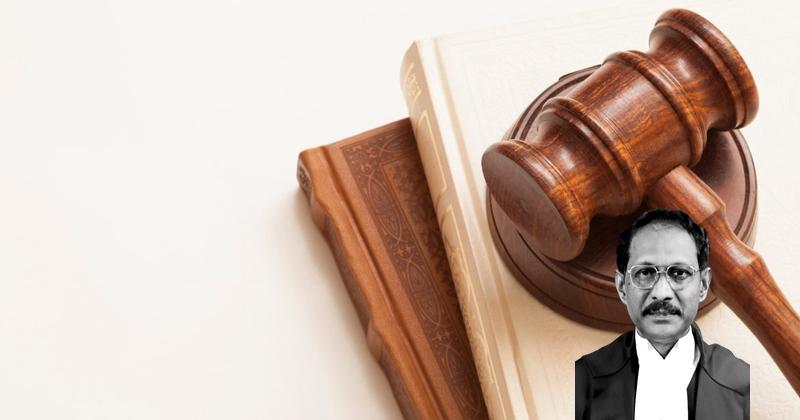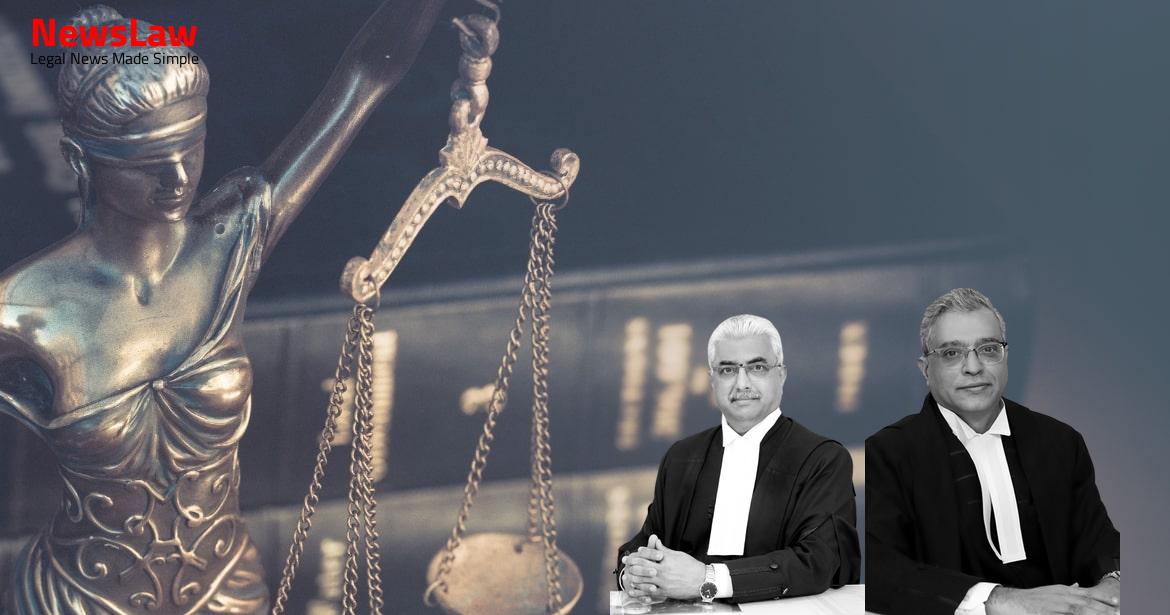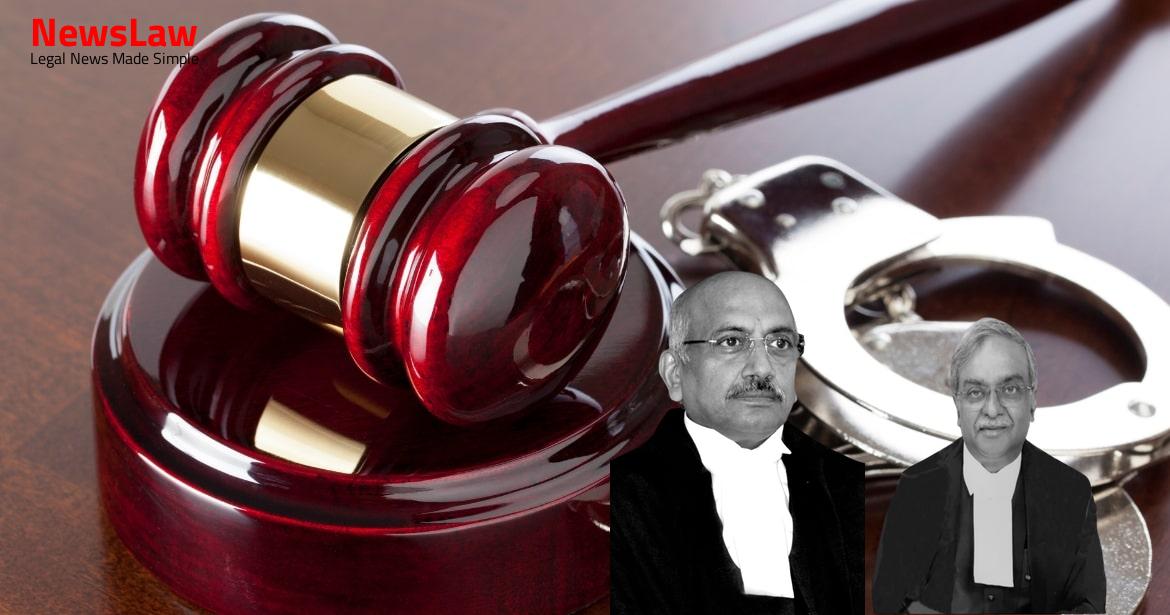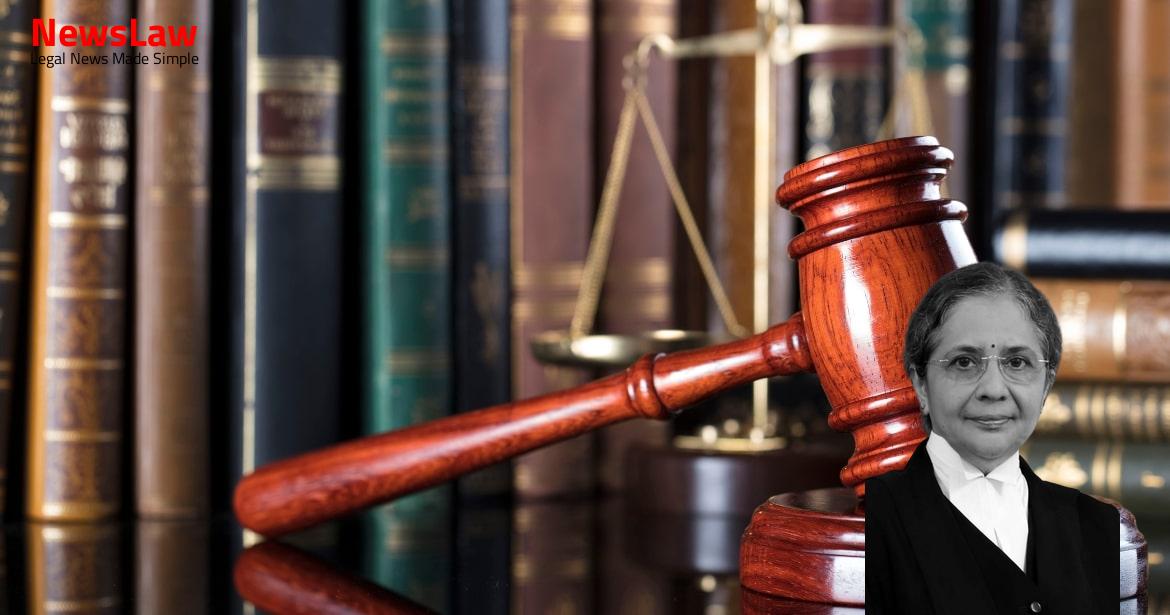6585 OF 2021 CIVIL APPEAL NO.3044 OF 2023 (@ S.L.P.(CIVIL) NO. 6593 OF 2021 CIVIL APPEAL NO.3043 OF 2023 (@ S.L.P.(CIVIL) NO. 6611 OF 2021 R.P.(CIVIL) NO.223 OF 2023 in CIVIL APPEAL NO. 567-568 OF 2023 CIVIL APPEAL NO.824 OF 2023 (@ S.L.P.(CIVIL) NO. 541 OF 2023 CIVIL APPEAL NO. 6596 OF 2021 CIVIL APPEAL NO. 7029 OF 2021 CIVIL APPEAL NO. 6608 OF 2021 CIVIL APPEAL NO. 7015 OF 2021 CIVIL APPEAL NO. 6584 OF 2021 CIVIL APPEAL NO. 7026 OF 2021 CIVIL APPEAL NOS. According to the Revenue, the Assessing Officer (hereinafter referred to as the ‘AO’) is competent to consider all the material that is available on record, including that found during the search, and make an assessment of ‘total income’.
Venkataraman, learned ASG has made the following submissions on behalf of the Revenue: i) It is submitted that under the Act, 1961, the charging section is section 4. It is submitted that thus the income tax is a tax on ‘total income,’ the assessee furnishes a return of ‘total income’ (as per Section 139 of the Act, 1961) and the AO assesses ‘total income’ only. iii) It is further submitted that the AO, in order to determine ‘total income’ correctly, needs to collect information from the assessee as well as third parties. It is submitted that section 132 of the Act, 1961 is a tool for collecting information relating to tax evasion by an assessee. A set of provisions comprising of Sections 158B to 158BG was introduced by Chapter XIV-B – Special procedure for assessment of search cases.
Section 158B(a) defines “block period”- “block period” means the period comprising previous years relevant to six assessment years preceding the previous year in which the search was conducted under section 132 or any requisition was made under section 132A and also includes the period up to the date of the commencement of such search or date of such requisition in the previous year in which the said search was conducted or requisition was made: Provided that where the search is initiated or the requisition is made before the 1 day of June, 2001, the provisions of this clause shall have effect as if for the words “six assessment years,” the words “ten assessment years” had been substituted;” (iv) Section 158B(b) defines “Undisclosed Income”: “undisclosed income” includes any money, bullion, jewellery or other valuable article or thing or any income based on any entry in the books of account or other documents or transactions, where such money, bullion, jewellery, valuable article, thing, entry in the books of account or other document or transaction represents wholly or partly income or property which has not been or would not have been disclosed for the purposes of this Act, or any expense, deduction or allowance claimed The total undisclosed income relating to the block period shall not include the income assessed in any regular assessment as income of such block period. The income assessed in this Chapter shall not be included in the regular assessment of any previous year included in the block period. (iii) In other words, both the income forming part of the regular assessment/reassessment falling under Section 143/147 respectively, and the assessment on undisclosed income for block period would constitute together the total income. The bottom line being, if the income is either disclosed or period for disclosure is yet to get over, or assessed or reassessed or gets settled before the settlement commission, or an assessment of undisclosed income has been made already under clause c of section 158C. (vii) Section 158BC provides the procedure for block assessment and determine the undisclosed income of the block period in the manner laid down in Section 158BB and the provisions of Section 142, Sub-Sections 2 and 3 of Section 143, Section 144 and Section 145 of the Act and the AO would proceed to pass an assessment order and determine the tax payable u/s 158BC(c) of the Act. It is submitted that the salient features of the special procedure introduced in 2003 were as below: (i) The scheme of parallel assessments were given a go-by. (vi) As mentioned above, the second proviso stipulated that assessment/reassessment for any assessment year (out of the 6 assessment years referred to above) pending on the date of the initiation of the search would abate and a single assessment would be made u/s 153A only.
Section 153A(2) states that if an order of assessment or reassessment made u/s 153A(1) stands annulled in appeal or any other legal proceeding, the assessments and reassessments which had abated under the second proviso to Sub pending on the date of initiation of such u/s 132 or requisition u/s 132A shall abate. It is submitted that in the absence of any search under section 132 or a requisition under section 132A, the assessment of ‘total income’ should be carried out under section 143, 144 and 147, i.e., regular assessment, best judgment assessment and reassessment. Once a search gets initiated or a requisition is made, the assessment process under every other provision of the Income Tax Act would abate.
The expression “undisclosed income” which was defined under erstwhile scheme Section 158B(b) has not found a reference or mention under the new scheme. Likewise, each year in the six years in question needs to be assessed independently and not as a block which again was defined under the erstwhile scheme u/s 158B(a), which is conspicuous by its absence under the new scheme. The second proviso using the expression “shall abate” should be read with the expressions “assessment” or “reassessment” employed in the very same proviso, i.e., it must be read with the expression employed in Section 153A(1)(b) “assess or reassess the total Income” and finally with the expression “notwithstanding” appearing as the opening phrase u/s 153A(1) of the Act. It is submitted that again the Parliament has been extremely careful in not employing the expression ‘total income’ in the second proviso which expression has been carefully employed under section 153A(1)(b) of the Act, 1961. They would get subsumed into the assessment/reassessment to be passed under section 153(1)(b) and the AO will pass one assessment order for each of the six assessment years subsuming all pending assessments and reassessments and such an order under section 153(1)(b) would be for the ‘total income’ for each of the six assessment years. It is submitted that in the absence of any statutory mandate, any interpretation that the scope of assessment under section 153A should be limited to the incriminating material found during the search is wholly erroneous and unsustainable, particularly considering the fact that Section 153A requires assessment of ‘total income’ and the statute bars resort to the regular provisions, viz., section 143(3)/147 for assessing the income that may be relatable to the material coming on the AO’s record from sources other than the search. Deputy Commissioner of Income Tax, (2012) 18 ITR (Trib.) 106 (ITAT/Mum) dated 06.07.2012 and the decision of the Delhi High Court in the case of Commissioner of Income Tax, Central-III v. It is submitted that under the scheme of the Act, 1961, there are different provisions to make assessment, namely, (1) regular assessment under section 143(3); (2) best judgment assessment under section 144; (3) reassessment in case of income having escaped assessment under section 147; and (4) assessment under section 153A in consequence of search under section 132. That the crucial words “search” and “requisition” appear in the substantive provision and the provisos of Section 153A is accordingly to be read in light of such provisions relating to search and requisition, i.e., sections 132 and 132A. It is submitted that since the assessment under section 153A is linked with search and requisition under sections 132 and 132A of the Act, 1961, it is evident that the object of the section is to bring to tax the undisclosed income which is found during the course of or pursuant to the search or requisition. Even in a case where there are bona fide reasons to believe that the aforesaid circumstances stated in sections 132 and 132A are present, however, upon undertaking the search, if no incriminating material whatsoever is unearthed, it naturally follows that the very belief that the circumstances exist stands contradicted. It is submitted that therefore in case no incriminating material is found during the course of search, the very reasons to believe forming the basis of search stands vitiated and the search action may say to be bad in the eye of the law.
As regards the contention on behalf of the Revenue that earlier scheme of block assessment under Section 158BA envisaged assessment of “undisclosed income” whereas first proviso to Section 153A(1) envisages assessment of “total income” which manifests the intention of the legislation to bring to tax “total income”, under Section 153A of the Act de hors any incriminating material, it is submitted that the said submission is without appreciating the object behind introducing the 153A regime as well as without appreciating the fact that definition of “total income” under Section 2 is qualified by the expression “unless the context otherwise requires.” viii) It is submitted that the erstwhile scheme of block assessment under Section 158BA envisaged assessment of “undisclosed income” for two reasons.
It is for such reason that distinction made earlier qua undisclosed income vis-a- vis other income had been done away with under the regime of Section 153A and it is for that reason that the procedure for separate assessments qua undisclosed income and income other than undisclosed income has been done away with. x) It is submitted that the second proviso to sub- section (1) of Section 153A provides that assessment or reassessment, if any, relating to the six assessment years referred to in the sub-section pending on the date of initiation of search under Section 132 or requisition under Section 132A, as the case may be, shall abate. Had the expression “total income” not been used in the first proviso, the Revenue would have not been able to bring to tax income other than undisclosed income even qua the abated assessments. In such category of cases, the expression “total income” cannot be construed literally as per the definition provided under Section 2 as the same would not only be contrary to the objective of the legislation (which is to do away with two parallel assessments) but also manifestly arbitrary as despite no incriminating material being found and despite assessment having been completed earlier, the Revenue will indulge into roving enquiry to tinker with earlier assessment in the garb of assessment under Section 153A. Since the assessment under Section 153A of the Act is linked with search and requisition under Sections 132 and 132A of the Act wherein the object of the section is to bring to tax the undisclosed income which is found during the course of or pursuant to the search or requisition, the expression “total income” for the purpose of first proviso Section 153A(1) is to be read in such context and consequently, the expression “total income” for the purpose of completed assessment cannot be read to give unfettered powers to the Revenue to tinker with the unabated assessments de hors any incriminating material. xiv)
It is submitted that thus, the expression “total income” under Section 153A in respect of completed assessment, when read in light of Sections 132 and 132A, shall mean the total income as per assessment order passed under Section 143(3) where assessment had been made earlier or; total income as per return where no assessment was made earlier but time limit to issue notice under Section 143(2) has expired.
The above concept was given a go- by on introducing this new scheme of assessment under section 153A which provided that assessment will be made for each of the assessment year separately and the income found undisclosed during the search will be taxed at the normal rate. On the basis of this expression ‘total income’, the AO cannot get jurisdiction to make an assessment in respect of other material available on record despite no incriminating material being found during the course of the search. It is submitted that had the intention of legislature as is being contended On behalf of the Revenue that AO has power to make additions in those assessment years where there is no incriminating material, the legislature would have provided that in case of annulled assessments, in the case of unabated assessments, the AO shall on the basis of the additions made earlier will be empowered to reframe those assessments as well.
Information/ document from sources other than search available with AO AO entitled to assess entire income, as pending regular assessme nt stood abated. AO also Scope of assessment u/s 153A must be restricted to: (a) grounds on which proceedings reopened; and (b) issue A Assessmen t u/s 153A to be restricted to Issue A relating to which incriminatin g material is found during entitled to assess entire income and not just issue A. AO not entitled to reopen entire assessment and undertake Assessmen t u/s 153A could only be done in respect of issue A relating to which incriminatin g material is found during search. Principal Commissioner of Income Tax-4 Vs. Principal Commissioner of Income Tax, Ahmedabad Vs. Commissioner of Income Tax (Central), Bangalore and Ors. Principal Commissioner of Income Tax, Central -2, New (2017) Deputy Commissioner of Income Tax – Circle -8, Delhi (2017) 397 ITR 416 (Delhi) 9.
Also Read: https://newslaw.in/case-type/civil/acquisition-of-land-and-deemed-lapse-under-the-act-2013/
The Deputy Commissioner of Income-Tax Central Circle – 6 (3) (2) Bangalore (2022 (8) TMI 966 (Karnataka) 10. Principal Commissioner of Income Tax (2021) 437 ITR 573 (Orissa) 12. Principal Commissioner of Income Tax-2, Kolkata Vs.
The Commissioner of Income Tax, Kochi and Assistant Commissioner of Income Tax, Calicut (2018) 404 ITR 642 (Kerala) 5. It is the case on behalf of the Revenue that once upon the search under Section 132 or requisition under Section 132A, the assessment has to be done under Section 153A of the Act, 1961 and the AO thereafter has the jurisdiction to pass assessment orders and to assess the ‘total income’ taking into consideration other material, though no incriminating material is found during the search even in respect of completed/unabated assessments.
At the outset, it is required to be noted that as such various High Courts, namely, Delhi High Court, Gujarat High Court, Bombay High Court, Karnataka High Court, Orissa High Court, Calcutta High Court, Rajasthan High Court and the Kerala High Court have taken the view that no addition can be made in respect of completed/unabated assessments in absence of any incriminating material. Once a search takes place under Section 132 of the Act, notice under Section 153A(1) will have to be mandatorily issued to the person searched requiring him to file returns for six AYs immediately preceding the previous year relevant to the AY in which the search takes place. Although Section 153 A does not say that additions should be strictly made on the basis of evidence found in the course of the search, or other post-search material or information available with the AO which can be related to the evidence found, it does not mean that the assessment “can be arbitrary or made without any relevance or nexus with the seized material.
Completed assessments can be interfered with by the AO while making the assessment under Section 153 A only on the basis of some incriminating material unearthed during the course of search or requisition of documents or undisclosed income or property discovered in the course of search which were not produced or not already disclosed or made known in the course of original assessment.” 2
Also Read: https://newslaw.in/case-type/criminal/analysis-of-bail-granting-criteria-in-criminal-cases/
Thereafter in the case of Saumya Construction (supra), the Gujarat High Court, while referring the decision of the Delhi High Court in the case of Kabul Chawla (supra) and after considering the entire scheme of block assessment under Section 153A of the Act, 1961, had held that in case of completed assessment/unabated assessment, in absence of any material, no additional can be made by the AO and the AO has no jurisdiction to re-open the completed assessment. In paragraphs 15 & 16, it is held as under: “15.On a plain reading of section 153A of the Act, it is evident that the trigger point for exercise of powers thereunder is a search under section 132 or a requisition under section 132A of the Act. Sub-section (2) of section 153A of the Act provides that if any proceeding or any order of assessment or reassessment made under sub-section (1) is annulled in appeal or any other legal provision, then the assessment or reassessment relating to any assessment year which had abated under the second proviso would stand revived. Similarly, sub- section (2) provides for revival of any assessment or reassessment which stood abated, if any proceeding or any order of assessment or reassessment made under section 153A of, the Act is annulled in appeal or any other proceeding.
In other words, the assessment, should be connected with something found during the search or requisition, viz., incriminating material which reveals undisclosed income Thus, while in view of the mandate of sub-section (1) of section 153A of the Act, in every case where there is a search or requisition, the Assessing Officer is obliged to issue notice to such person to furnish returns of income for the six years preceding the assessment year relevant to the previous year in which the search is conducted or requisition is made, any addition or disallowance can be made only on the basis of material collected during the search or requisition. In case where a pending reassessment under section 147 of the Act has abated, needless to state that the scope and ambit of the assessment would include any order which the Assessing Officer could have passed under section 147 of the Act as well as under section 153A of the Act.” 8. The erstwhile scheme of block assessment under Section 158BA envisaged assessment of ‘undisclosed income’ for two reasons, firstly that there were two parallel assessments envisaged under the erstwhile regime, i.e., (i) block assessment under section 158BA to assess the ‘undisclosed income’ and (ii) regular assessment in accordance with the provisions of the Act to make assessment qua income other than undisclosed income.
The very purpose of search, which is a prerequisite/trigger for invoking the provisions of sections 153A/153C is detection of undisclosed income by undertaking extraordinary power of search and seizure, i.e., the income which cannot be detected in ordinary course of regular assessment. Assessment in case of search or requisition – (1) Notwithstanding anything contained in Section 139, Section 147, Section 148, Section 149, Section 151 and Section 153, in the case of a person where a search is initiated under Section 132 or books of account, other documents or any assets are requisitioned under Section 132-A after the 31st day of May, 2003, the Assessing Officer shall— ( a ) issue notice to such person requiring him to furnish within such period, as may be specified in the notice, the return of income in respect of each assessment year falling within six assessment years referred to in clause (b), in the prescribed form and verified in the prescribed manner and setting forth such other particulars as may be prescribed and the provisions of this Act shall, so far as may be, apply accordingly as if such return were a return required to be furnished under Section 139; ( b ) assess or reassess the total income of six assessment years immediately preceding the assessment year relevant to the previous year in which such search is conducted or requisition is made: Provided that the Assessing Officer shall assess or reassess the total income in respect of each assessment year falling within such six assessment years: (2) If any proceeding initiated or any order of assessment or reassessment made under sub-section (1) has been annulled in appeal or any other legal proceeding, then, notwithstanding anything contained in sub-section (1) or Section 153, the assessment or reassessment relating to any assessment year which has abated under the second proviso to sub-section (1), shall stand revived with effect from the date of receipt of the order of such annulment by the Commissioner: Provided that such revival shall cease to have effect, if such order of annulment is set aside Explanation.—For the removal of doubts, it is hereby declared that,— ( i ) save as otherwise provided in this section, Section 153- B and Section 153-C, all other provisions of this Act shall apply to the assessment made under this section; ( ii ) in an assessment or reassessment made in respect of an assessment year under this section, the tax shall be chargeable at the rate or rates as applicable to such assessment year.” However, it is required to be noted that as per the second proviso to Section 153A, the assessment or re-assessment, if any, relating to any assessment year falling within the period of six assessment years pending on the date of initiation of the search under Section 132 or making of requisition under Section 132A, as the case may be, shall abate.
Therefore, on true interpretation of Section 153A of the Act, 1961, in case of a search under Section 132 requisition under Section 132A and during the search any incriminating material is found, even in case of unabated/completed assessment, the AO would have the jurisdiction to assess or reassess the ‘total income’ taking into consideration the incriminating material collected during the search and other material which would include income declared in the returns, if any, furnished by the assessee as well as the undisclosed income. Therefore, even in case of block assessment under section 153A and in case of unabated/completed assessment and in case no incriminating material is found during the search, the power of the Revenue to have the reassessment under sections 147/148 of the Act has to be saved, otherwise the Revenue would be left without remedy. Therefore, only in a case where the undisclosed income is found on the basis of incriminating material, the AO would assume the jurisdiction to assess or reassess the total income for the entire six years block assessment period even in case of completed/unabated assessment. In view of the above and for the reasons stated above, it is concluded as under: i) that in case of search under Section 132 or requisition under Section 132A, the AO assumes the jurisdiction for block assessment under section 153A; ii) all pending assessments/reassessments shall stand abated; iii) in case any incriminating material is found/unearthed, even, in case of unabated/completed assessments, the AO would assume the jurisdiction to assess or reassess the ‘total income’ taking into consideration the incriminating material unearthed during the search and the other material available with the AO including the income declared in the returns; and iv) in case no incriminating material is unearthed during the search, the AO cannot assess or reassess taking into consideration the other material in respect of completed assessments/unabated assessments. Insofar as the aforesaid Civil Appeals preferred by the assessee – M/s Kesarwani Zarda Bhandar Sahson, Allahabad are concerned, these appeals have been preferred against the impugned judgment and order dated 06.09.2016 passed in ITA Nos. 1 In view of the discussion hereinabove, once during search undisclosed income is found on unearthing the incriminating material during the search, the AO would assume jurisdiction to assess or reassess the total income even in case of completed/unabated assessments. 1
Case Title: PR. COMMISSIONER OF INCOME TAX CENTRAL 3 Vs. ABHISAR BUILDWELL P. LTD. (2023 INSC 417)
Case Number: C.A. No.-006580-006580 / 2021



